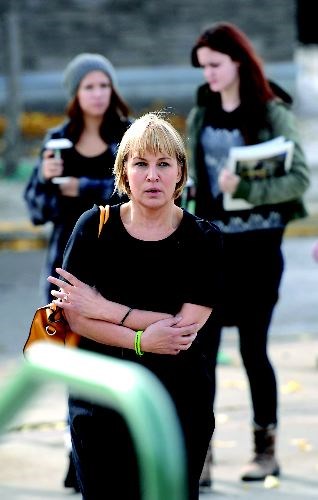The sister of a Canadian military veteran who was killed in a standoff with an RCMP emergency response team four years ago is in favour of ensuring benefits from Veterans Affairs are in place for soldiers prior to receiving medical discharge.
The provision, recommended by Gary Walbourne, the Defence Ombudsman of the Canadian Armed Forces, could have made a difference for Greg Matters, her brother, Tracey Matters said this week.
"Most certainly," she said in an e-mail. "It took him years to get his injuries recognized."
At the time of his death in September 2012, Matters was relying on a pension of $123 a month and had to live with their mother on the family's Pineview property because he couldn't afford to live anywhere else.
Ironically, Veterans Affairs had called her brother on the morning of his death to tell him he would be eligible for benefits. But because he was outside talking to the RCMP following a run-in between himself and his brother, Matters was unable to answer the phone.
In a standoff with the Mounties later the same day, Matters was shot dead.
Following 15 years in the military, Matters was discharged in 2009. Known as vibrant and enthusiastic, Matters became withdrawn following a tour in Bosnia and began drinking heavily.
He was discharged for being under the influence of alcohol too often, Tracey Matters said, but also noted drinking and depression are symptoms of post-traumatic stress disorder and that he wasn't diagnosed with PTSD until well after he was discharged.
However, she also noted that Matters had suffered a severe back injury while on tour in Bosnia which prevented him from participating in further deployment and training. He continued to suffer from the ailment after he was discharged and had returned to Pineview, a coroner's inquest into he death had heard.
Acting on Walbourne's recommendation will "streamline processes, reduce stress and anxiety and ensure ex-servicemen and women get the attention, help and respect they need and deserve within a reasonable timeframe," Tracey Matters said.
Tony Manuge, a local veteran known for his outspoken views on Veterans Affairs, also likes Walbourne's suggestion.
"Yes the system needs to be streamlined for soldiers injured in service," Manuge said in an e-mail. "The military has to do a better job of tracking and documenting the causation of these problems.
"When they are identified a soldier should not have to relive it all in order to get help. Some of the skeletons are pretty dark."
Defence Minister Harjit Sajjan is not so welcoming. According to the Globe and Mail, he wrote a letter to Walbourne saying the Canadian Armed Forces has "no extant statutory or policy mandate to systematically determine if an illness developed or an injury sustained during a member's career is related to their military service."
In an editorial, the Globe and Mail dismissed Sajjan's position as ridiculous.
"Surely that should be all the more reason to establish just such a mandate, so as to be able to make just such a determinations," the newspaper said.
"A streamlined process may cost somewhat more money, but there is an excellent case to be made that the Ombudsman's proposals will save money in the long run," the newspaper also said.
That's ridiculous.



